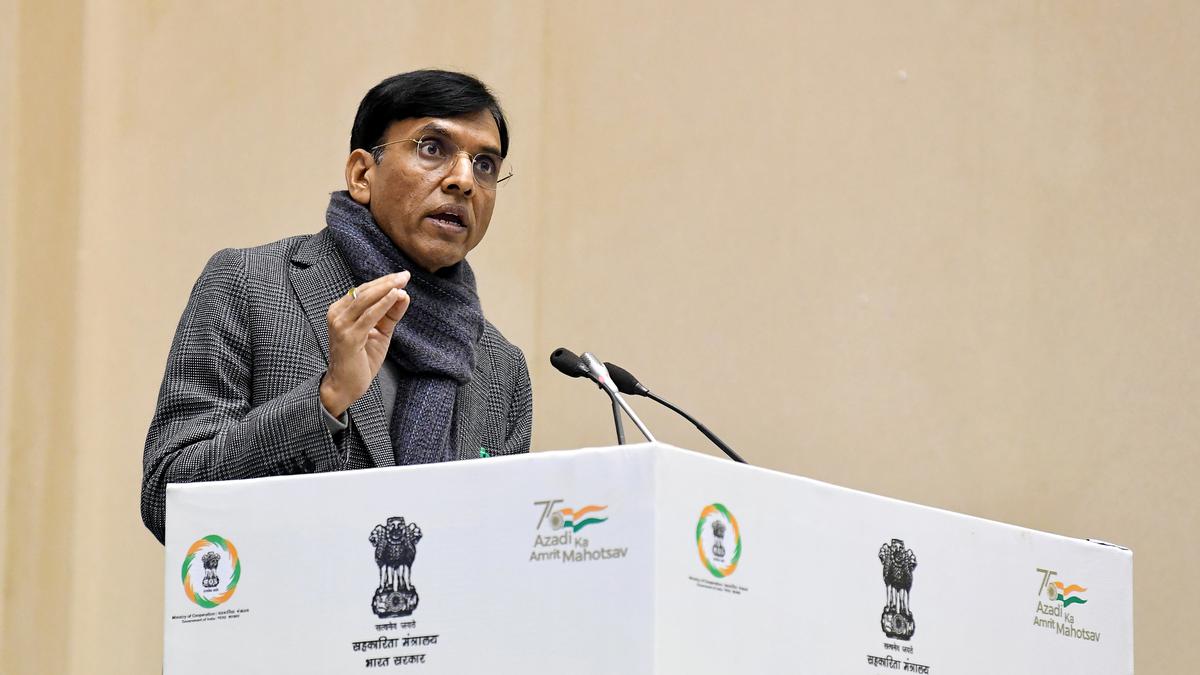Union Health Minister Mansukh Mandaviya. File
| Photo Credit: ANI
Talking to reporters about his new book ‘Fertilising the Future: Bharat’s March Towards Fertiliser Self-Sufficiency’, Union Fertilizers Minister Manuskh Mandaviya said here on Wednesday that consistent steps taken by the Narendra Modi government are leading to decrease in fertilizer subsidies and self reliance in fertilizers production. He said the country has adequate stocks of fertilizers for the ongoing rabi and upcoming kharif seasons.
The Minister said the country has stocks of 70 lakh tonnes of urea, 20 lakh tonnes of Di Ammonium Phosphate, 10 lakh tonnes of Muriate of Potash, 40 lakh tonnes of nitrogen, phosphorus, and potassium and 20 lakh tonnes of single super phosphate at present.
When asked about the subsidy, he said it is likely to come down and is estimated at around ₹1.7-1.8 lakh crore.
“Subsidy is expected to be lower this year because of fall in global prices. We have not increased retail prices to reduce subsidy,” he said.
He added that when the prices increased globally, the Centre increased subsidy to protect farmers interest and retail prices did not change. “The government’s fertiliser subsidy bill is likely to decline 30-34% to ₹ 1.7-1.8 lakh crore this fiscal due to fall in global prices and lower imports of urea,” Mr. Mandaviya added.
He said the domestic production of urea has increased as four urea plants have already been revived and the fifth is set to start production soon. Nano liquid urea and nano liquid DAP are being promoted by the Centre, he said adding that States are getting incentives to curb use of chemical fertilizers. “India has entered into long-term supply agreements with global suppliers for assured imports of fertilizers and its raw materials at pre-determined prices,” he said.
On the attacks against commercial vessels in Red Sea, he said it will not create any shortage of fertilizers in the country. “Ministry of External Affairs is making necessary interventions and our Navy is giving protection to Indian cargo vessels,” Mr. Mandaviya said.







